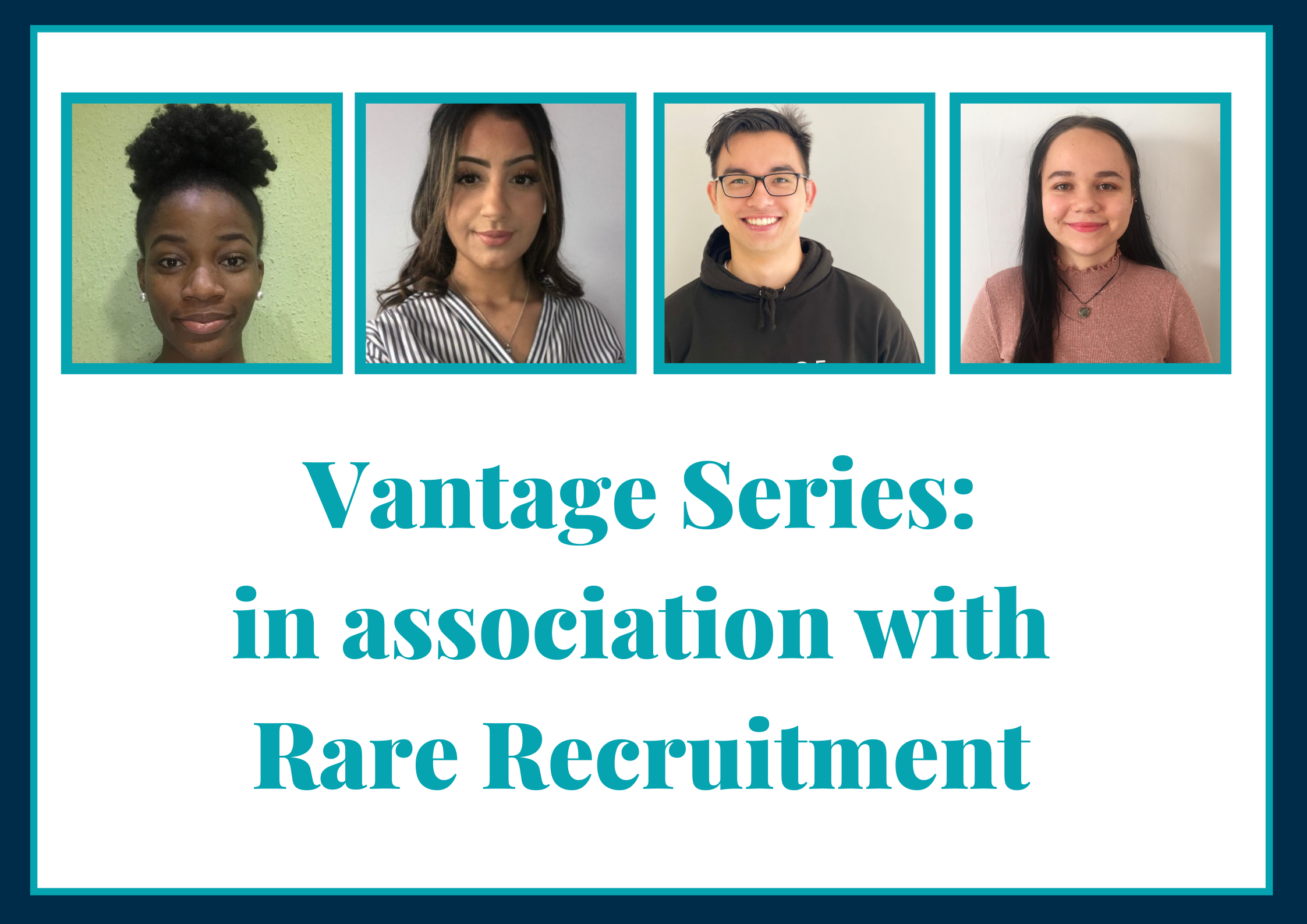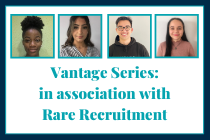
Like everything else, Covid-19 has impacted the legal profession this year – particularly at the junior and recruitment end. Here the Vantage ambassadors discuss the issues that impacted access, including the unprecedented roll out of virtual opportunities; the sense of intensified competition; and the standardisation of A-Level results.
Chambers Student: How do you think Covid-19 has impacted access to the profession for socially mobile candidates?
Beste Bektas, University of Southampton, Second-Year Law Student: I thought about the positive impact before the negative. I had secured a first-year scheme for April, where I had to go to London and stay overnight and finding accommodation as a candidate from outside of London was a bit daunting. So, all the virtual opportunities that have arisen this year have been positive in the sense that I can get the same experience without certain struggles, such as not finding or affording accommodation.
“...that will make things harder for more socially mobile candidates, especially mentally, because if you start to think ‘well it was going to be tough before, it’ll be impossible now!’
At the same time, Covid-19 has had negative impacts as there have been job cuts, and I think it has made the legal market even more competitive. That will make things harder for socially mobile candidates, especially mentally, because if you start to think ‘well if it was going to be tough before, it’ll be impossible now!’.
CS: Do you think that more virtual opportunities in the future will help to broaden access?
Beste: Absolutely. I think it’s a great thing. I’ve seen many law firms offering the virtual Forage internships, which so many people can access. These things do increase access and diversity and inclusion in the profession, so it’s encouraging to see their use and hopefully their ongoing development after Covid.
The only thing is that the buzz of actually going to an office can’t be replaced, and doing so helps you visualise your future, so that’s been taken away. While that has been taken away, we’re mature enough to understand that there are so many great virtual opportunities to come out of this, that improve the student experience with regards to access, finance, location, social mobility and diversity and inclusion.
“I think it depends on how these opportunities are advertised and whether they reach people from lower socio-economic backgrounds.”
Marshall Taylor, University of Warwick, Second-Year Law Student: I think it depends on how these opportunities are advertised and whether they reach people from lower socio-economic backgrounds. At school I had access to a laptop, but during the holidays I didn’t know about anything.
They will definitely be helpful, but they need to be communicated well to reach lower socio-economic students and also inspire confidence in those students to take these opportunities.
Tobi Alao, University of Warwick, Second-Year Sociology Student: I do think this new level of being in a virtual world is a positive in all the negatives. If you couldn’t afford to travel, if you’re from a low socio-economic background, if you’re at a non-Russell Group university etc... you will benefit from these virtual events that various organisations are hosting. The firms this year have been able to reach a whole new audience, and as a result people are feeling that they are not only going to see students at a select group of universities.
Amalia Albu, University of Leeds, Second-Year Law Student: I definitely feel that firms have been able to reach more people than they would have this year. From the student perspective it has been much easier to reach firms, through virtual law fairs, Insight Days, Q&As etc... It’s just so much easier to send a message instead of feeling all nervous going up to someone!
“The firms this year have been able to reach a whole new audience, and as a result people are feeling that they are not only going to see students at a select group of universities.”
I did a week’s work experience at a firm via Teams, which enabled the firm to offer the opportunity to a lot more people. We had interactive sessions with trainees, who did presentations on their work and answered our questions on applying. We also completed two exercises where we reviewed a contract and conducted research. I got extensive feedback and got advice on my CV too.
CS: How did you feel about the way A-Levels results were handled by the government this year?
Beste: Clearly there are still students being prioritised due to the type of education they have received. Clearly there’s still a perception that state school educated students aren’t as competent as privately educated students, which is so far from the truth.
I remember going on LinkedIn and seeing so many posts by talented individuals saying that they’d missed their university offer. Even though they’d done so well in their mocks exams, they had been given grades much lower than expected because the opportunity to sit their exams had been taken away. One of my state school mentees was so upset – she had had her university and future taken away. It was heart-breaking.
“Clearly there’s still a perception that state school educated children aren’t as competent as privately educated students, which is so far from the truth.”
